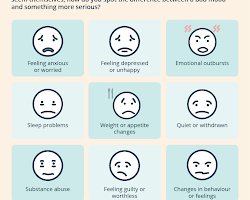The COVID-19 pandemic has had a profound impact on the UK, both physically and emotionally. The after-shock of COVID in the UK in 2023 is still being felt, and it is not yet clear what the long-term effects will be.
Some of the immediate effects of the pandemic included:
- A surge in COVID-19 cases and deaths, putting a strain on the NHS and leading to widespread disruption to everyday life.
- A sharp decline in economic activity, as businesses were forced to close and people were unable to work.
- A rise in unemployment and poverty, as many people lost their jobs or were unable to find work.
- Increased levels of anxiety and depression, as people were isolated from their friends and family and faced uncertainty about the future.
The UK government has taken a number of steps to try to mitigate the effects of the pandemic, including:
- Introducing a range of financial support measures, such as the furlough scheme and the Self-Employment Income Support Scheme.
- Investing in the NHS to help it cope with the increased demand for care.
- Providing financial support to businesses to help them stay afloat.
- Running public information campaigns to raise awareness of the virus and encourage people to follow the rules.
As the pandemic has progressed, the UK government has gradually relaxed the restrictions that were put in place. However, it is likely that the virus will continue to circulate, and there may be further waves of infection. This means that the after-shock of COVID in the UK in 2023 is likely to continue for some time.
Some of the long-term effects of the pandemic that are still being felt include:
- A shortage of healthcare workers, as many people left the profession during the pandemic.
- A backlog of patients waiting for treatment, as many people were unable to access healthcare during the pandemic.
- A rise in mental health problems, as people continue to struggle with the emotional impact of the pandemic.
- An increase in inequality, as the pandemic has disproportionately affected the poorest and most vulnerable in society.
The UK is still recovering from the pandemic, and it is not yet clear what the long-term effects will be. However, it is clear that the pandemic has had a profound impact on the country, both physically and emotionally.
- A continued increase in the number of people with long COVID. Long COVID is a condition that can develop after a person has been infected with COVID-19. It can cause a range of symptoms, including fatigue, shortness of breath, and cognitive problems.
- A shortage of healthcare workers. The pandemic has led to many healthcare workers leaving the profession, either due to burnout or because they have been infected with COVID-19. This has created a shortage of healthcare workers, which is making it difficult to provide care to patients.
- An increase in mental health problems. The pandemic has had a significant impact on mental health, with rates of anxiety and depression rising. This is due to a number of factors, including the isolation and uncertainty caused by the pandemic.
- An increase in poverty. The pandemic has led to an increase in poverty, as many people have lost their jobs or had their hours reduced. This is having a knock-on effect on other areas, such as education and healthcare.
The UK government is working to address the after-shocks of COVID-19, but it is a complex and challenging task. It is important to remember that the pandemic is not over, and there is still a risk of further waves of infection. It is also important to be aware of the after-shocks of the pandemic, so that we can take steps to mitigate their effects.





No comments:
Post a Comment